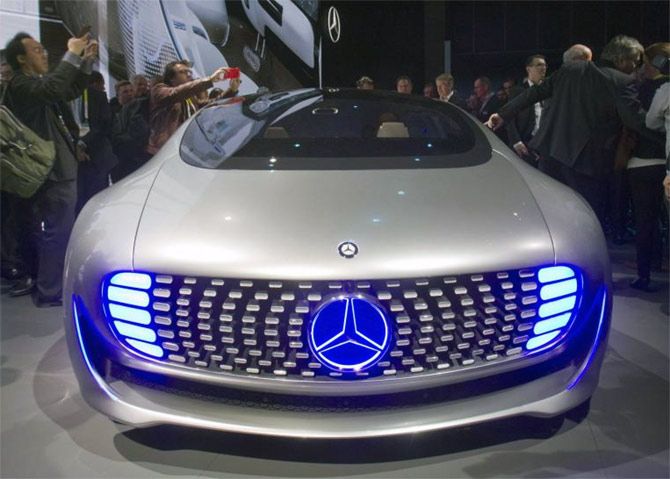
Survey finds reluctance to use such cars in developed economies
Tired of having to drive on congested roads and go through the hassles of finding a parking spot, 85 per cent Indians who responded to a survey said they were willing to ride in self-driving vehicles, higher than any other country.
According to a report prepared by the Boston Consulting Group in collaboration with the World Economic Forum, high traffic congestion, poor roads and high accident rates were the prime reasons why consumers in developing countries hope to significantly benefit from self-driving vehicles.
As many as 75 per cent of the respondents in China and only 52 per cent in the US were willing to be driven in a self-driving vehicle.
Consumers in Japan and Germany were the most reluctant to be driven in self-driving vehicles.
Only 36 per cent in Japan and 44 per cent in Germany were willing to use such vehicles.
Consumers like convenience and the single biggest attraction to self-driving vehicles is not having to find a parking place.
"More than four in ten consumers said that the number one reason for using self-driving vehicles is that it drops me off, finds a parking spot and parks on its own," stated the report.
The survey, the largest so far dedicated to self-driving vehicles, involved 5,500 consumers in 27 cities across China, France, India, Japan, the Netherlands, Singapore, UAE, the UK and the US.
The survey said consumers in India, the US and China saw a tech company as an ideal manufacturer of an entire self-driven vehicle.
Consumers in France, Germany and Japan trust traditional automakers with respect to self-driven vehicles.
Many consumers appeared willing to pay a premium of $5,000 or more for a fully self-driving car.
In France, India, and Japan, every second consumer was ready to pay more for the vehicle.
This willingness to pay extra was driven by an economic logic that balanced the incremental cost against potential cost savings in other areas -- such as lower parking fees, fuel savings, and even lower housing costs -- if it would become more convenient to live farther from the more expensive city core.
Companies such as Tesla Motors, Google, Apple, TomTom, Baidu, Faraday Future, BMW, Mercedes-Benz and Tata Motors-owned Jaguar Land Rover are looking at become key players in the driverless space.
Toyota is leading the race with around 1,400 patents to its name, followed by Bosch, Denso, Hyundai and General Motors.
Among other industry leaders, Tesla's founder Elon Musk has estimated that true autonomous driving would be achieved in five-six years, according to a report by Nishith Desai Associates.
Closer home, sports utility vehicle market leader Mahindra & Mahindra's electric vehicle Reva has submitted proof of concept for driverless cars in the UK and Singapore and has started experimenting at its research and development facility in Bengaluru.
Image: Mercedes-Benz F015 Luxury in Motion concept car is shown during the 2015 International Consumer Electronics Show (CES) in Las Vegas, Nevada. Photograph: Steve Marcus/Reuters
The image is used for representational purpose only







 © 2025
© 2025